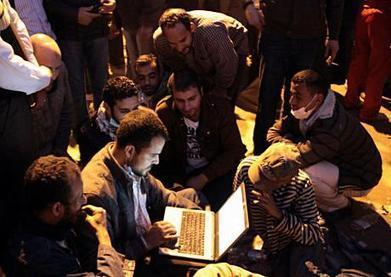Use of the internet has not led to a predominance of virtual actions and movements over mobilizations in ‘physical space’. On the contrary, since 2011 the occupation of urban public spaces - and more particularly symbolic spaces - has been a major feature of these movements.
Research and publish the best content.
Get Started for FREE
Sign up with Facebook Sign up with X
I don't have a Facebook or a X account
Already have an account: Login
on peer-to-peer dynamics in politics, the economy and organizations
Curated by
jean lievens
 Your new post is loading... Your new post is loading...

Monica S Mcfeeters's curator insight,
February 22, 2014 10:01 AM
This is a great article about how to move important challenges to the status quo forward and introduce new ideas that need to be heard and perhaps implemented. Here is look behind the what is in the thoughts of those most serious about shaping and being part of changes that really need to happen. |
|


















